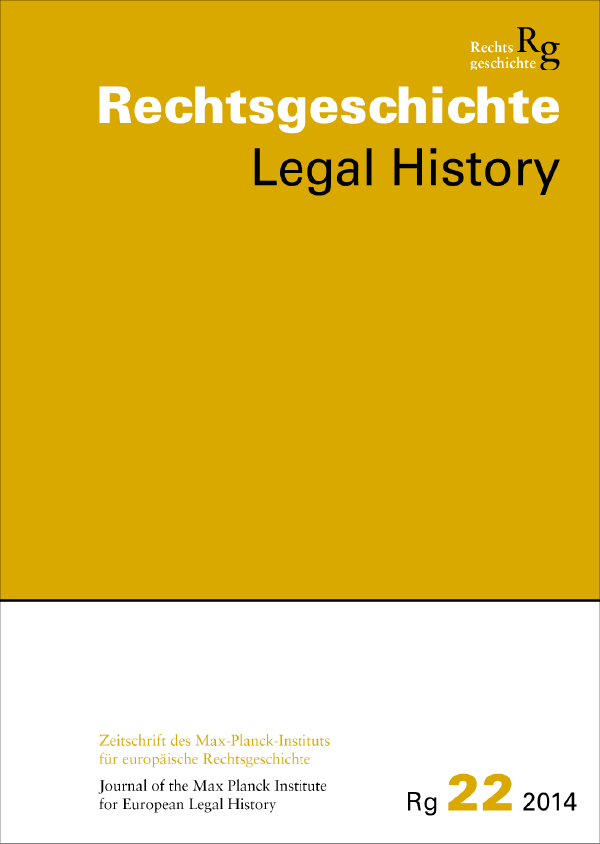German Legal History: National Traditions and Transnational Perspectives
DOI:
https://doi.org/10.12946/rg22/016-048Abstract
In this article, I review select institutional and analytical traditions of Legal History in 20th century Germany, in order to put forth some recommendations for the future development of our discipline. A careful examination of the evolution of Legal History in Germany in the last twenty-five years, in particular, reveals radical transformations in the research framework: Within the study of law, there has been a shift in the internal reference points for Legal History. While the discipline is opening up to new understandings of law and to its neighboring disciplines, its institutional position at the law departments has become precarious. Research funding is being allocated in new ways and the German academic system is witnessing ever more internal differentiation. Internationally, German contributions and analytic traditions are receiving less attention and are being marginalized as new regions enter into a global dialogue on law and its history. The German tradition of research in Legal History had for long been setting benchmarks internationally; now it has to reflect upon and react to new global knowledge systems that have emerged in light of the digital revolution and the transnationalization of legal and academic systems. If legal historians in Germany accept the challenge these changing conditions pose, thrilling new intellectual and also institutional opportunities emerge. Especially the transnationalization of law and the need for a transnational legal scholarship offers fascinating perspectives for Legal History.
Downloads
Published
How to Cite
Issue
Section
License
Copyright (c) 2014 Author

This work is licensed under a Creative Commons Attribution-NonCommercial-NoDerivatives 3.0 Unported License.





